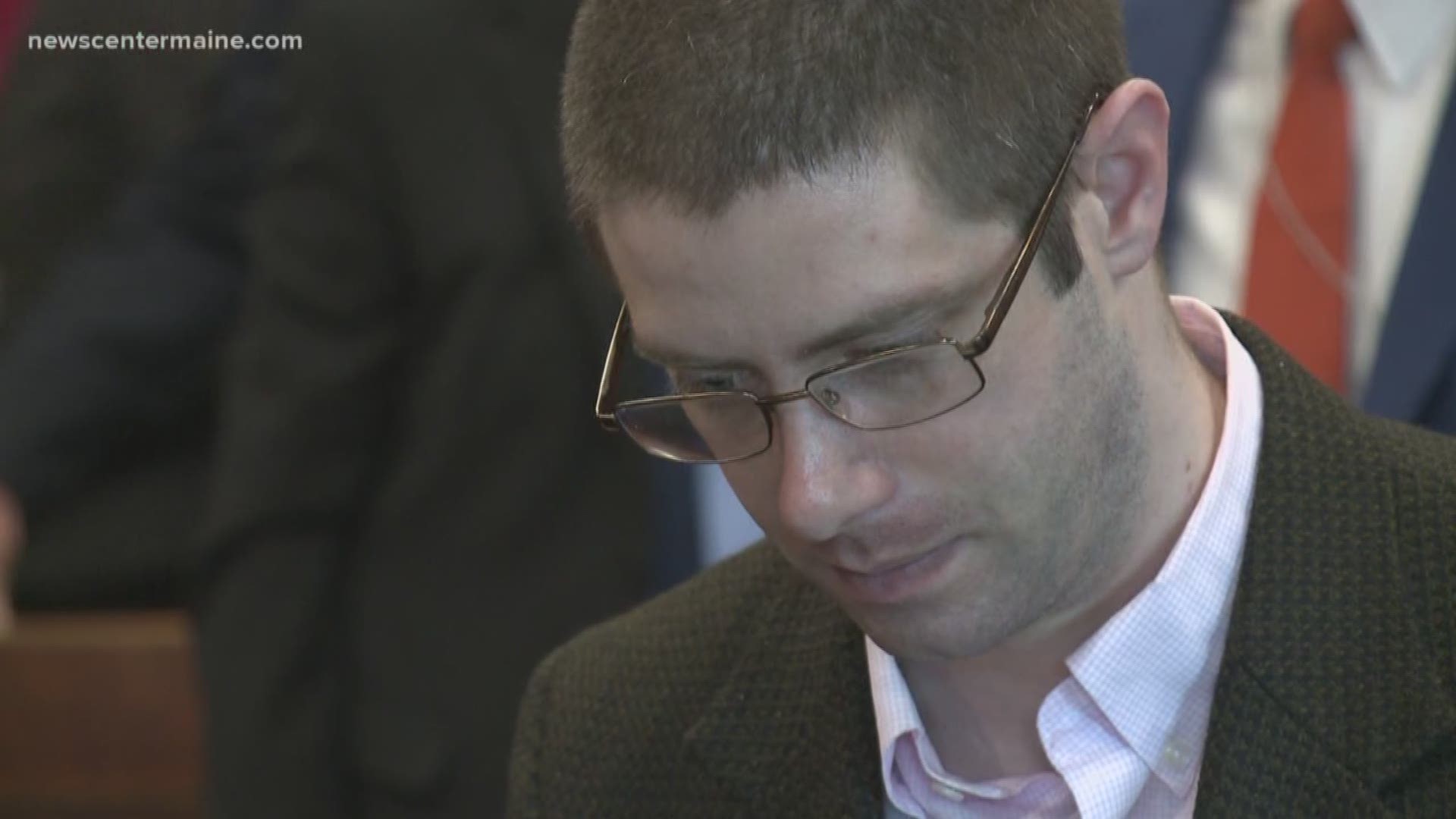PORTLAND, Maine —
The state rested it's case against John Williams' Thursday afternoon, but before they did they called one last witness, Larry Morrill, a Maine State Police investigator who is trained in blood stain pattern analysis and shooting analysis and reconstruction.
Before the jury got to hear this testimony, Williams' attorney Verne Paradie argued against it, but the judge allowed it.
Once on the stand, Morrill described the evidence he used to determine his findings, which was a combination of where grass and dirt stains where located on Corporal Cole's clothing and boots, blood stain evidence, what Cole's gunshot wound looked like, the direction the bullet traveled through Cole's body and a fired cartridge casing that was located next to Cole's body.
After analyzing all of that evidence, Morrill determined it was not possible Corporal Cole was standing when he was shot, but rather he was either on his hands and knees or crouching down and that his arm was up in a defensive move.
Morrill and another detective did a reenactment of these two possible scenarios in front of the jury. It was powerful to watch considering the state's depiction of what happened that night shows that John Williams would have shot Corporal Cole execution style.
In his cross examination, Paradie questioned the witness saying some of his findings were inconclusive. Paradie disagrees with the state's assertion that Cole was shot at close range.
Paradie requested to videotape the demonstration, which the judge granted. Paradie says depending on what the verdict is, he will use that demonstration as grounds for appeal.
The defense started their case by calling two law enforcement officers to the stand, both who were part of the team who arrested Williams'.
A Maine State Police Trooper admitted he swore and applied harder pressure to Williams as he was helping to escort him out of the woods. The trooper said he was angry at Williams for killing Cole.
The defense isn't disputing that John Williams shot and killed Cole. They're arguing Williams was in the throes of a drug addiction and that while he killed Corporal Cole he did not intend to.
If convicted of murder, Williams could be sentenced to life in prison.

